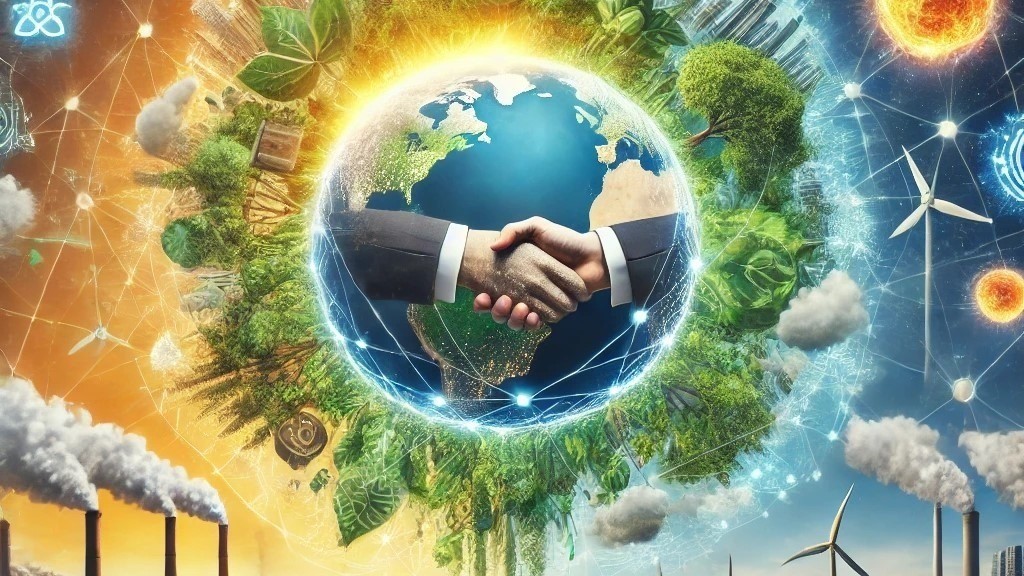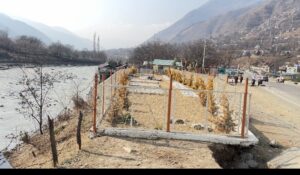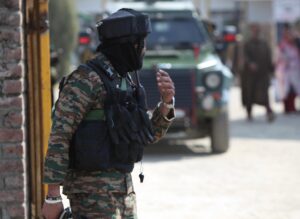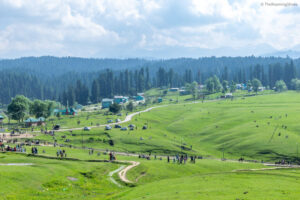Fighting Climate Change Through Climate Diplomacy

By| Farooq Ahmad Lone
Among the various crises of the 21st century, the climate change crisis is the greatest and most dangerous. No matter which country you live in, you have to face and fight the climate change crisis. By using modern technologies from smartphones in our hands to airplanes we are paving the way to a much warmer world in which fans, fridges, air conditioners, etc., will not be sufficient to protect us from the warming effects of climate change. Since climate change is a global phenomenon and no single country or continent can be wholly blamed for it, we need to open the door to climate diplomacy. In simplest terms, climate diplomacy can be defined as fighting climate change using the skills and tools of diplomacy. The use of diplomacy to reduce climate change crises also opens the doors to peace, bilateral and multilateral talks, and cooperation between nations and continents. It is because of climate diplomacy that agreements like the Kyoto Protocol, Montreal Protocol, Paris Agreement, etc., have come into existence. Through climate diplomacy, nations have shown interest in working together to fight common issues besides climate change such as poverty, human rights, terrorism, etc. It has also facilitated a cordial atmosphere between nations to discuss and find solutions to shared challenges. Through climate diplomacy, weak and developing nations can interact with strong and developed nations to combat the climate change crisis.
The challenges posed by the climate crisis are enormous. Greenhouse gas emissions have already increased global temperatures and are drying up water sources, raising sea levels, and threatening lives and livelihoods around the world. Dangerous weather events intense rain, extreme storms, prolonged periods of drought, deadly heatwaves, heavy snowfalls, and uncontrollable wildfires are becoming more frequent and severe. The repercussions not only threaten people’s livelihoods and hinder development but also raise crucial geopolitical questions that touch upon the heart of international politics: sovereignty, territorial integrity, and access to resources such as food, water, and energy. The climate crisis has the potential to trigger massive conflicts with international dimensions, leading to insecurity, instability, and disruption of global peace.
Addressing all these issues requires a global strategy and coordination. This is where climate diplomacy comes in. It is, to a great extent, crisis-preventive diplomacy. It can be thought of as a kind of emergency diplomacy necessary to confront the climate crisis. In today’s world, we not only need economic or political diplomats we need climate diplomats as well. Every nation should train and prepare climate diplomats to fight climate change effectively. In climate diplomacy, special focus is given to sustainable development i.e., development that does not produce excessive pollution and is not pursued at the expense of the environment. Climate diplomacy must be used to reduce the climate crisis, not for material or political gains. It should be conducted in accordance with international laws.
As we all know, climate change is a destabilizing factor that needs to be considered in efforts to build resilience. Promoting a sensitive and responsible climate change policy to ensure stability is the need of the hour. The climate crisis is a global issue that touches upon diverse areas of international and foreign policy, and climate diplomacy encompasses all diplomatic engagements required to combat it. Let us hope that this concept of climate diplomacy will bring revolutionary changes at the international level in responding to climate change. As one of my friends, Irfan Pullani who participates in international conferences on climate change—predicts: “Climate change may unite the world.”
Author: Farooq Ahmad Lone writes on international relations.He can be reached at lonefarooqahmadir12@gmail.com





